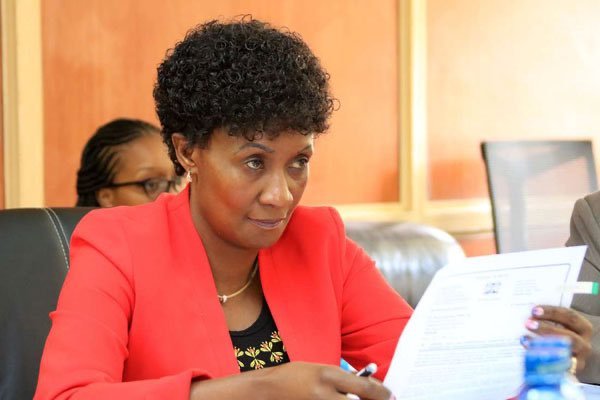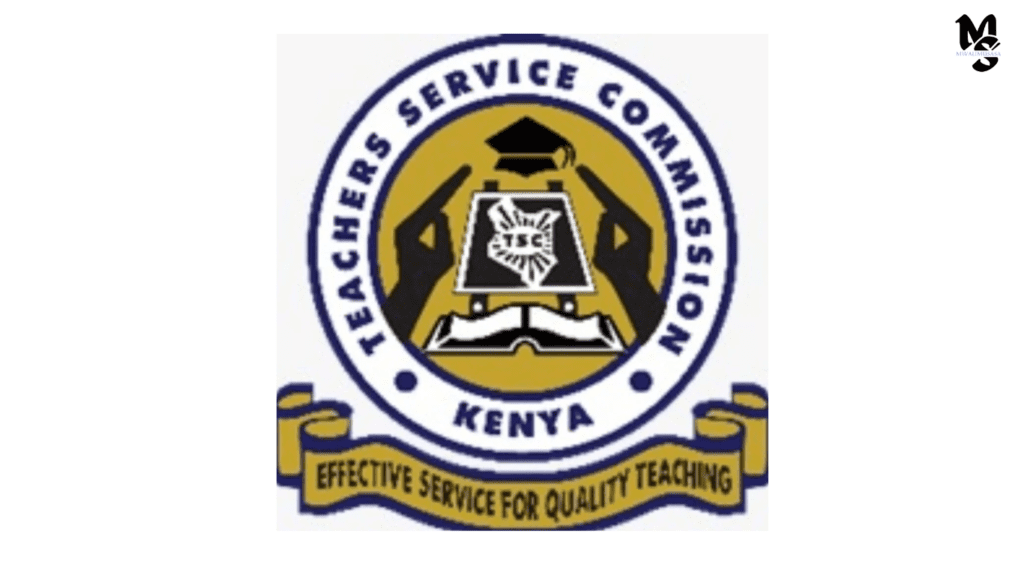10 Essential Documents Every Teacher Must Provide During the TSC Interview

Current CEO of TSC

Introduction to the TSC Interview Process
The Teacher Service Commission (TSC) interview process is a critical step in the employment journey for aspiring teachers in various educational institutions. Serving as a regulatory body, the TSC is responsible for the management of teachers’ affairs in Kenya, including recruitment, training, and assessment. This process is particularly significant as it aims to confirm approximately 46,000 teachers who are essential to enhancing the education system in the country. The selection criteria employed during the interview not only assess the candidates’ qualifications but also ensure they align with the pedagogical standards required in modern classrooms.
As candidates prepare for the TSC interview, it is imperative that they gather the necessary documentation that demonstrates their competencies and suitability for the teaching profession. These documents include certificates, identification, and various qualifications that substantiate their educational background and experience. The importance of having these documents cannot be overstated; they significantly influence the outcome of the interview and the candidates’ prospects of being absorbed into the teaching workforce.
Additionally, the TSC interview serves as a platform for candidates to exhibit their understanding of teaching methodologies, classroom management, and their ability to assess students effectively. During this assessment, the interview panel evaluates not only tangible documentation but also the candidates’ responses and interactions, which reflect their readiness to take on the responsibilities of a teacher. Thus, meticulous preparation and timely submission of the certification and related documents are essential aspects of the interview process.
In conclusion, understanding the TSC interview process and preparing accordingly with the relevant documents is vital for teachers aspiring to further their careers in education. Ensuring that all necessary qualifications and identification are in order will not only facilitate a smoother interview experience but also enhance the credibility of each candidate.
The Importance of Documentation
Documentation plays a pivotal role in the teacher interview process conducted by the Teachers Service Commission (TSC). This process aims to verify the identity and qualifications of candidates to ensure that they comply with the rigorous standards set forth in the field of education. The significance of providing appropriate documents cannot be overstated, as these materials serve as evidence of a teacher’s competence, training, and readiness to assume educational responsibilities.
During the TSC interview, candidates are required to present various documents. These may include identification documents, academic credentials, and certification of professional qualifications. The verification of these documents is critical not only for ensuring the legitimacy of the candidates but also for maintaining the integrity of the educational system as a whole. Without sufficient documentation, candidates risk being disqualified from the hiring process, regardless of their interview performance or teaching aptitude.
Furthermore, presenting complete and accurate documents demonstrates a teacher’s commitment to professionalism and ethical standards. It indicates preparedness and compliance with regulatory requirements, which are essential for building trust with the educational institution and stakeholders involved. Inadequate documentation can lead to serious consequences, including delays in the hiring process or outright rejection. This emphasizes the necessity of thorough preparation and attention to detail when assembling one’s qualification files for the TSC interview.
In conclusion, documentation is not merely a formality in the TSC interview process; it is a fundamental component that validates a teacher’s qualifications and identity. Therefore, all prospective teachers must prioritize the completion and accuracy of their educational documents to foster a successful and compliant entry into the teaching profession.
National Identification Card
The national identification card serves as a fundamental document for teachers during their interview with the Teachers Service Commission (TSC). This identification plays a critical role in verifying both the identity and qualifications of candidates seeking employment in the educational sector. It is important for teachers to understand that presenting a valid national identification card is a prerequisite for the interview process.
Applicants are required to produce the original national identification card along with a clear photocopy. This ensures that the TSC can accurately assess the identity of each candidate while maintaining a secure and organized record of all individuals participating in the interview process. The presence of an original document not only confirms the authenticity of the identification but also helps to validate the educational qualifications and other relevant documentation submitted by the candidate.
The requirement for a national identification card extends beyond mere identification; it plays a pivotal role in the overall assessment of a teacher’s eligibility. The TSC uses this document to cross-reference a candidate’s personal and educational information, ensuring that all records are in order. Without a valid national identification card, a teacher may face delays or complications concerning their results in the application process. Therefore, candidates must ensure that their national identification card is current, legible, and presented according to the TSC’s guidelines.
In conclusion, the national identification card is an essential document that all teachers must provide during the TSC interview. It not only acts as proof of identity but also plays a significant role in the validation of qualifications and other required documents. Ensuring its proper presentation can greatly influence the outcome of a teacher’s application and future career in education.
Certificate of Registration as a Teacher
The Certificate of Registration as a Teacher is a pivotal document that educators must present during their interview with the Teachers Service Commission (TSC). This document serves as an official validation of a teacher’s professional standing and indicates compliance with regulatory requirements set forth by the TSC. It signifies that the teacher has undergone rigorous training, adhered to necessary assessments, and achieved successful completion of all qualifications required to practice in the educational field.
In many jurisdictions, presenting the Certificate of Registration is not just a formality; it is a mandatory requirement. This document assures the interviewing panel that the candidate possesses the necessary credentials and has met all conditions stipulated by the TSC. The certificate typically includes the teacher’s name, registration number, and the date of registration, providing a clear identification of the individual’s professional background.
Moreover, this certificate plays a crucial role in safeguarding the quality of education by ensuring that all registered teachers have the appropriate qualifications and are recognized by the governing body. During the interview process, candidates are often assessed not only on their teaching competencies but also on their adherence to the standards outlined by the TSC. Failure to present this essential document could lead to disqualification from the recruitment process, as the panel seeks to employ individuals who meet all necessary educational certifications and have a proven record of competence.
In conclusion, the Certificate of Registration as a Teacher is an essential document that validates an educator’s qualifications and compliance with TSC policies. Ensuring that this document is current and readily available during the interview process is crucial for prospective teachers aiming to advance their careers in education.
Evidence of Completion of Upgrade DPTE or UDPT Certificate
One of the critical components that potential teachers must present during their Teachers Service Commission (TSC) interview is the evidence of completion of the Diploma in Primary Teacher Education (DPTE) or the Upgrade Diploma in Primary Teacher Education (UDPT). These qualifications serve as foundational certifications that validate a teacher’s ability to deliver quality education and effectively engage with their students.
The DPTE or UDPT qualification is not merely a formality; it symbolizes a teacher’s commitment to professional development and their readiness to meet the diverse educational needs of pupils. During the TSC assessment process, the presentation of these documents is scrutinized as part of the identification and qualification verification. The significance of the DPTE or UDPT extends beyond the individual teacher; it reflects a broader commitment to enhancing the overall education system in the region.
To successfully navigate the TSC interview, teachers must ensure that the certificate they provide is authentic and corroborates their educational background. The verification of these documents plays a pivotal role in determining the overall results of the interview. Failure to present a valid DPTE or UDPT certificate may lead to a negative assessment and could jeopardize a candidate’s chances of securing a teaching position.
Thus, it is imperative for teachers to not only acquire the DPTE or UDPT certificate but also to keep abreast of any changes in requirements stipulated by the Teachers Service Commission. Ensuring that these critical documents are in order will not only assist candidates during the interview but also reinforce their qualifications in the realm of education. As such, prospective teachers should prioritize the completion of these essential certifications in preparation for their career journey.
PTE Certificate
The Primary Teacher Education (PTE) certificate holds significant value in the interview process conducted by the Teachers Service Commission (TSC). This document serves as a formal recognition of a teacher’s educational qualifications and is a crucial element in the verification of a candidate’s credentials. When preparing for a TSC interview, prospective teachers must ensure that their PTE certificate is up-to-date and available for presentation. Providing a photocopy of this certificate is mandatory, as it facilitates the assessment of educational qualifications by the interviewing panel.
The importance of the PTE certificate extends beyond mere compliance; it is a testament to the teacher’s commitment to the educational profession. This certification is an indicator that the candidate has undergone the necessary training and assessment, equipping them with the foundational knowledge essential for teaching. During the interview, the panel will not only examine the teacher’s qualifications but also assess their readiness and capability to contribute positively to the educational landscape.
The PTE certificate is tied to various key elements within the educational framework, including pedagogy, classroom management, and educational psychology. Thus, it signifies that the teacher has successfully completed an accredited teacher education program, which is a vital requirement for the TSC. Moreover, it assures the commission that the candidate possesses the requisite skills and knowledge essential for fostering a conducive learning environment. In this regard, providing the PTE certificate during the interview plays a pivotal role in establishing a teacher’s competency, as well as demonstrating adherence to the standards set forth by the TSC.
KCSE Certificates or Equivalent
Among the essential documents required during the Teachers Service Commission (TSC) interview process, the Kenya Certificate of Secondary Education (KCSE) certificate or its equivalent stands out as crucial. This document serves as a primary indicator of a teacher’s academic qualifications and foundational knowledge in various subjects. It is imperative that candidates present their KCSE certificates to authenticate their educational achievements and demonstrate their eligibility for teaching positions.
Furthermore, for those who may have re-sat for their KCSE exams, it is equally important to provide documentation reflecting these results. The TSC places significant emphasis on the integrity and veracity of educational qualifications. Therefore, prospective teachers should ensure that any re-sat certificates are included in their documentation. This not only substantiates their claims regarding academic performance but also illustrates their commitment to overcoming academic challenges.
The KCSE certificate encapsulates a teacher’s mastery of essential skills and knowledge that are fundamental for effective teaching. It acts as a benchmark for assessing a teacher’s basic qualification level, which is considered during the hiring process. Additionally, it serves to assure the TSC that candidates have met the necessary academic standards required for qualification in the teaching profession.
Teachers should also be mindful of including any equivalent qualifications if they pursued their education outside the Kenyan system. Such documents must be verified and recognized by the relevant authorities to ensure compliance with TSC requirements. In summary, the KCSE certificate and its equivalents play a pivotal role in establishing a teacher’s academic credentials and foundational qualifications during the TSC interview process, making them indispensable components of the required documentation.
KCPE Certificate or Equivalent
The Kenya Certificate of Primary Education (KCPE) is a crucial document that every aspiring teacher must provide during the Teachers Service Commission (TSC) interview. This certification serves as a verification of the individual’s foundational education, which is essential for pursuing a career in teaching. The KCPE signifies that the candidate has successfully completed the primary education cycle, and it establishes a baseline of educational qualifications necessary for higher studies and professional training in education.
In addition to the KCPE certificate, it is important for candidates to include documentation of all attempts made to obtain this certificate. This includes copies of any results or certificates from previous sittings. The TSC places significant emphasis on the completeness of documents presented during the interview process; thus, any attempts at certification, even if unsuccessful, should be disclosed. This openness not only reflects honesty but also demonstrates resilience and a commitment to professional growth in the field of education.
Moreover, obtaining the KCPE or an equivalent qualification forms a critical part of the teacher certification process, as it supports the assessment of a prospective teacher’s readiness to handle the responsibilities of educating students. For the TSC, assessing the educational background of a candidate is pivotal in ensuring that the individuals being considered for teaching roles possess the necessary qualifications that align with the standards expected in education. Therefore, the KCPE certificate, along with any supplementary documentation, holds considerable weight in the overall evaluation during the TSC interview.
Additional Documents: Certification by KNEC and More
During the Teachers Service Commission (TSC) interview, it is imperative for candidates to present several crucial documents that support their educational qualifications and professional competencies. Beyond the essential identification and academic qualifications, certain additional documents play a key role in showcasing the candidate’s eligibility and readiness for the teaching profession. One such document is the letter of certification of results issued by the Kenya National Examinations Council (KNEC). This certification serves as an official confirmation of a teacher’s academic achievements, verifying the authenticity of qualifications obtained.
Furthermore, candidates must also present their primary and secondary school leaving certificates. These documents outline the foundational education levels that contribute to a teacher’s overall educational background. They are instrumental in assessing the candidate’s journey through the educational system and verifying that they meet the stipulated educational requirements set by the TSC.
In special cases, teachers may need to furnish the National Council of Persons with Disabilities (NCPWD) card. This document is particularly relevant for candidates with disabilities, as it certifies their status and eligibility for specific support services and considerations within the educational sector. By presenting this card, applicants highlight their qualifications in accordance with inclusive education policies established by the TSC.
It is essential for candidates to ensure that all documents are organized, clearly presented, and readily accessible during the interview. A well-prepared submission not only reflects professionalism but also reinforces the applicant’s commitment to transparency and compliance with the TSC’s requirements. Each of these documents contributes significantly to the overall assessment of the candidate’s qualifications, making them vital components of a successful TSC interview. Attention to detail in this area can substantially influence the outcome of the application process.
Affidavit for Name Variance
The affidavit for name variance is a crucial document that teachers must provide during the Teachers Service Commission (TSC) interview process. This document serves to clarify any discrepancies in the names found across different official identification documents, such as certificates, academic qualifications, and identification cards. In the education sector, consistency in naming is paramount. Any inconsistency can lead to complications that may hinder the assessment of a teacher’s credentials during the certification process.
Name variances could arise for several reasons, including but not limited to marriage, legal name changes, or clerical errors in personal records. An affidavit allows an individual to formally declare the reasons for the discrepancies and ensure that their name is represented correctly across all documentation. This is particularly important because the TSC requires a thorough verification of all documents as part of their qualifications assessment.
Submitting an affidavit that highlights the name variance not only streamlines the interview process but also builds credibility. It demonstrates transparency and a proactive approach in resolving potential issues beforehand. Moreover, an affidavit may be necessary for various other processes, including applying for additional certifications or professional development opportunities, thereby facilitating smoother interactions with educational bodies.
Teachers should be mindful of providing well-prepared legal affidavits to avoid delays during the TSC interview. Such diligence helps to ensure that the examination of one’s qualifications for the position is based purely on merit and established credentials without disputes related to personal identity. Attention to detail in providing the right documents can significantly influence the results of the interview and ultimately aid in the successful completion of the hiring process.
Conclusion: Preparing for a Successful Interview
In the process of preparing for the Teachers Service Commission (TSC) interview, it is imperative for educators to understand the significance of presenting a comprehensive set of documents. The necessity of providing the correct documentation cannot be overstated, as these documents not only validate a teacher’s qualifications but also serve as a testament to their commitment and professionalism in the field of education.
The essential documents typically required include academic certificates, professional qualifications, assessment results, and identification. Each of these plays a critical role in the interview process, as they provide clear verification of a teacher’s educational journey and professional development. Without these documents, candidates may face difficulties in proving their competencies and readiness for the teaching profession.
Moreover, meticulous attention to detail is essential in assembling these documents for the interview. Ensuring that copies are clear, complete, and accurate will facilitate a smoother assessment by the interview panel. It is advisable to prepare an organized portfolio that consists of all relevant documentation, thereby demonstrating a candidate’s preparedness and thoroughness. Additionally, obtaining the right certification and ensuring all documents comply with the requirements set forth by the TSC is crucial for a favorable outcome.
Preparation extends beyond merely gathering documents; it also entails understanding the interview process and demonstrating effective communication skills. Teachers should prepare for potential questions regarding their qualifications, teaching philosophy, and approach to education, in addition to presenting their documents confidently. This comprehensive preparation will ultimately lead to a successful interview and a strong impression on the panel.
In conclusion, thorough preparation and meticulous attention to detail in assembling the necessary documents for the TSC interview is vital for all teaching candidates. Proper documentation substantiates a teacher’s qualifications and enhances their credibility, increasing their chances of success in the competitive educational landscape.






